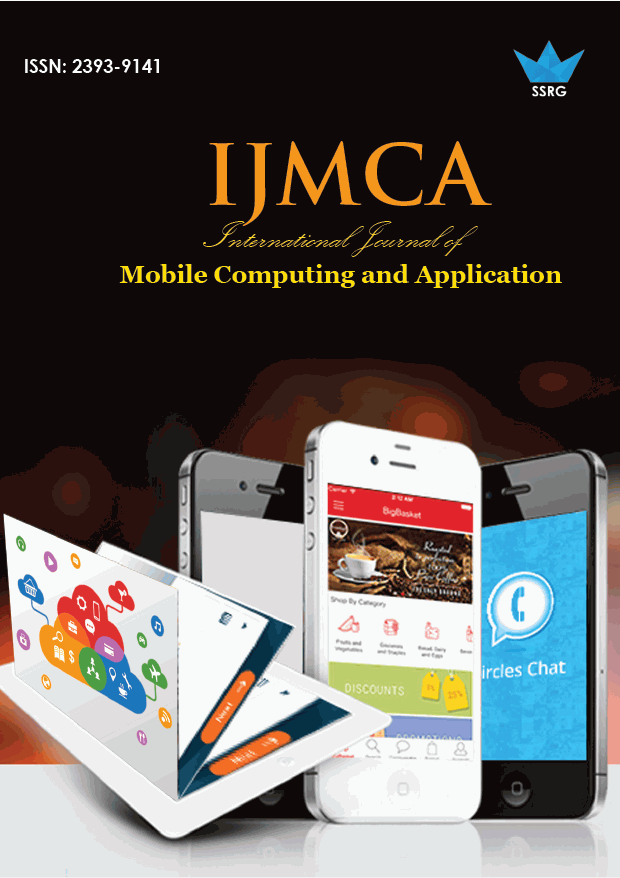A Study on Efficient Route Optimization using Border Gateway Protocol in Mobile Adhoc Networks

| International Journal of Mobile Computing and Application |
| © 2017 by SSRG - IJMCA Journal |
| Volume 4 Issue 1 |
| Year of Publication : 2017 |
| Authors : N.Vijay kumar , T.Santhi Sri , Dr.J.Rajendra Prasad and Y.Vijayalakshmi4 |
How to Cite?
N.Vijay kumar , T.Santhi Sri , Dr.J.Rajendra Prasad and Y.Vijayalakshmi4, "A Study on Efficient Route Optimization using Border Gateway Protocol in Mobile Adhoc Networks," SSRG International Journal of Mobile Computing and Application, vol. 4, no. 1, pp. 9-12, 2017. Crossref, https://doi.org/10.14445/23939141/IJMCA-V4I2P103
Abstract:
Mobile Adhoc networks are being developed for a variety of applications. Routing for communication operations in such Mobile Adhoc networks is crucial and challenging. This paper studies the problem of determining different types of Routings for packet transmission over a multi-hop communication path using modulation scaling. The goal is to optimize the path selection overall nodes while satisfying a specific latency constraint. This paper presents (to the best of our knowledge) the first in-depth analysis of different routing protocols; among those basically concentrate on Border Gateway Protocol. In this BGP how to route while transmission the data and how to filter the routes, different parameters by taking into considerations we propose to optimize the route for data transmission.
Keywords:
Mobile Adhoc Networks (MANETS), Border Gateway Protocol (BGP).
References:
[1] Hedrick, C.: Routing Information Protocol. Internet Request For Comments 1058 (1988).
[2] Johnson, D.B., Maltz, D.A.: Dynamic Source Routing in Ad Hoc Wireless Networks. Mobile Computing. (1996) 153-181.
[3] Halabi, Bassam. Internet Routing Architectures. Cisco Press: Indianapolis, 1997.
[4] Border Gateway Protocol version 4 (BGP-4) Software Release 2.7.1 C613-03091-00 REV A.
[5] Ye, Z., Krishnamurthy, S.V., Tripathi, S.K.: A Framework for Reliable Routing in Mobile Ad Hoc Networks. IEEE INFOCOM (2003).

 10.14445/23939141/IJMCA-V4I2P103
10.14445/23939141/IJMCA-V4I2P103